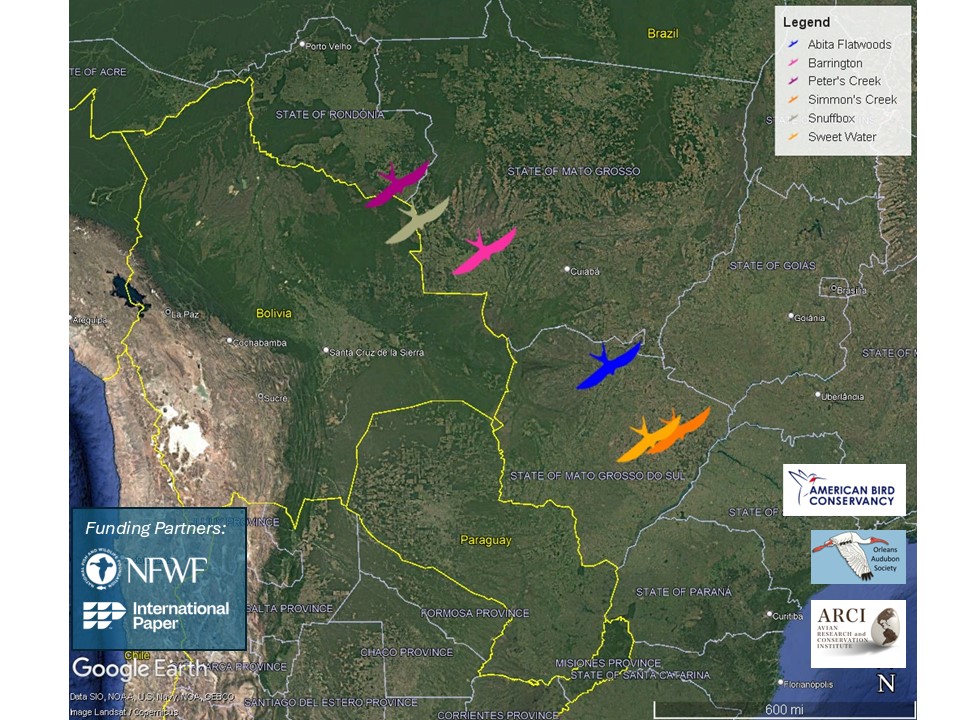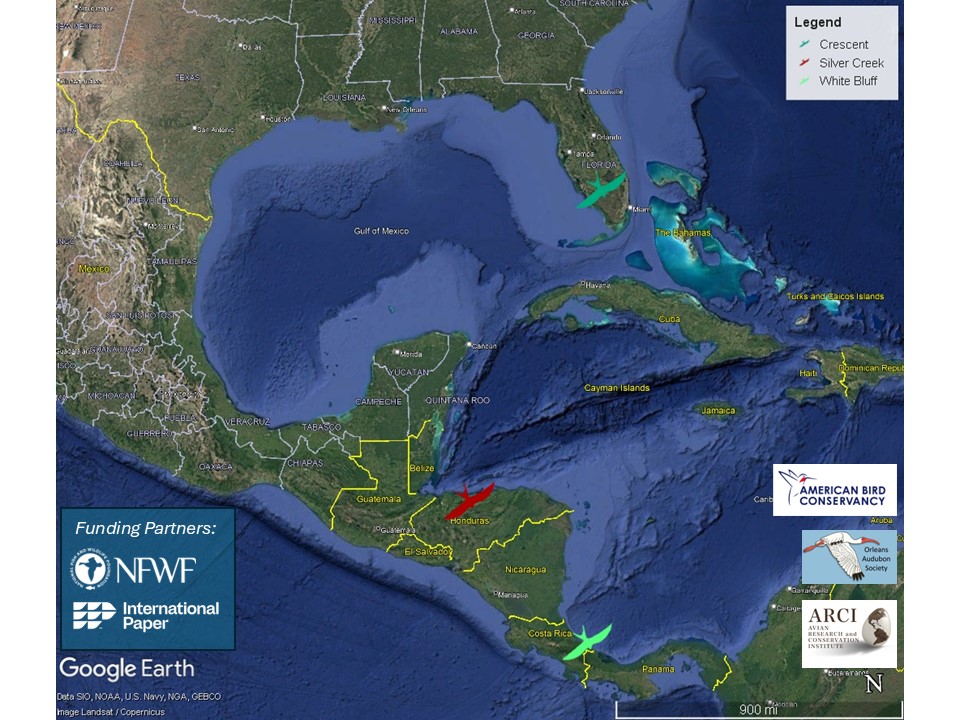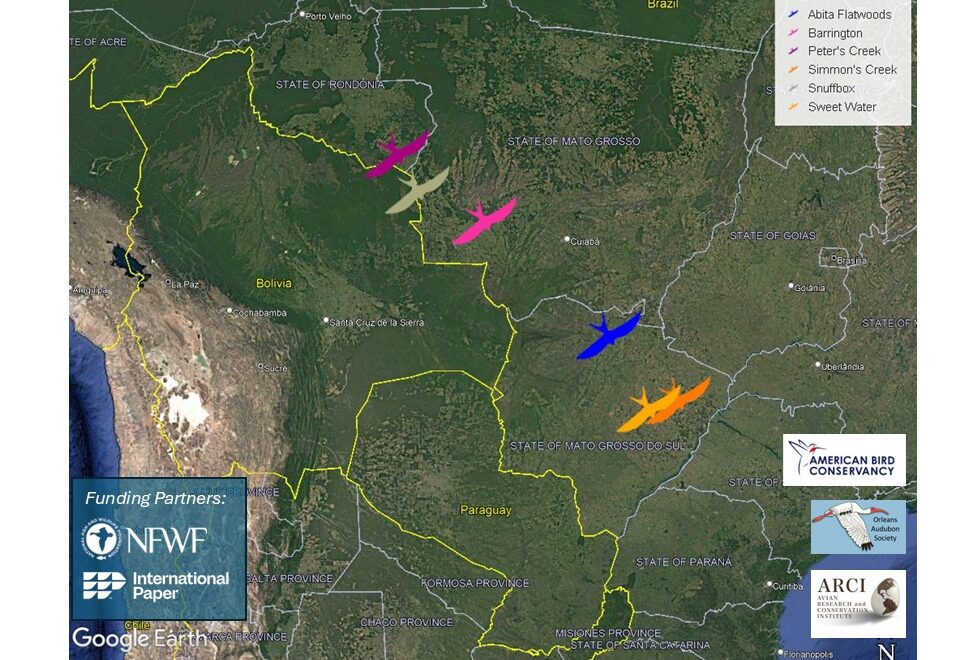
Avian Research and Conservation Institute (ARCI) and Orleans Audubon Society (OAS) have partnered with the American Bird Conservancy (ABC) through International Paper (IP) and the National Fish and Wildlife Foundation (NFWF) to support the study of Swallow-tailed Kites on working timber forests in the southeastern U.S. See blogs on the introduction to the project and migration.
Since the OAS and ARCI GPS-tracked Swallow-tailed Kite update for all U.S.-tracked kites in early November, some birds have continued to move south, others stayed where they were in Brazil, and a handful have not reported since then. Many of the U.S. population of Swallow-tailed Kites have reached their wintering territories. These nine kites tagged for this working forest initiative each have their own migration story. See below.

On the move, the Abita Flatwoods female tagged in 2023 in St. Tammany Parish, Louisiana, has last logged in from northern Mato Grosso do Sul in mid-November.
Simmon’s Creek, a male from Georgetown County, South Carolina, and Sweet Water, a female from Burke County, Georgia, have also made their way south to Mato Grosso do Sul and are 45 miles from one another.
Peter’s Creek, a male from Georgetown County, South Carolina, continues to remain in the State of Rondônia, Brazil.
Snuffbox Canal, a male from McIntosh County, Georgia, continues to stay in Mato Grosso, Brazil, with regular data uploads while Barrington, a male from McIntosh County, was 150 miles southeast but has not uploaded data since 7 October.
“Missing” GPS-tracked Swallow-tailed Kites
Some birds have not uploaded data for over 100 days. Most of these kites are being tracked with the GSM-cellular network, and when they are not near cell towers, they cannot upload their data. During lengthy stretches over mountains, oceans, and vast wilderness, they are far from a cellular connection. We hope this is the case with our “missing” birds and that once they reach a place with cell coverage, they can connect and upload all their stored location data.
Crescent, a female from Jasper County, South Carolina, was in south Florida on 1 August and has not uploaded data since. We will remain optimistic that she will get to an area with cell coverage soon.
White Bluff, a male tagged in Marion County, Mississippi, has not reported since he was in Costa Rica in late August.
The Silver Creek, a juvenile female released in Marion County, Mississippi, who migrated over land and around the Gulf of Mexico last uploaded data in Honduras in early October. She is the first juvenile Swallow-tailed Kite to be tracked with a GPS-unit! See her story.

The value of data collected by each individual kite extends above and beyond what we gather at one nest, on one working forest in the southeastern U.S. The data accumulates each year, with each season and is expanding our knowledge of the entire U.S population of Swallow-tailed Kites that we have been tracking since the 1990’s. New foraging aggregations, roost sites, migratory stopovers, changes in migration corridors, and wintering destinations are all important features we can analyze with each GPS-tracked individual. We are grateful to our funding sources International Paper (IP) and the National Fish and Wildlife Foundation (NFWF) as well as the many working forest owners, land managers, and partners like the American Bird Conservancy (ABC) for making this project a possibility.


Leave a Reply